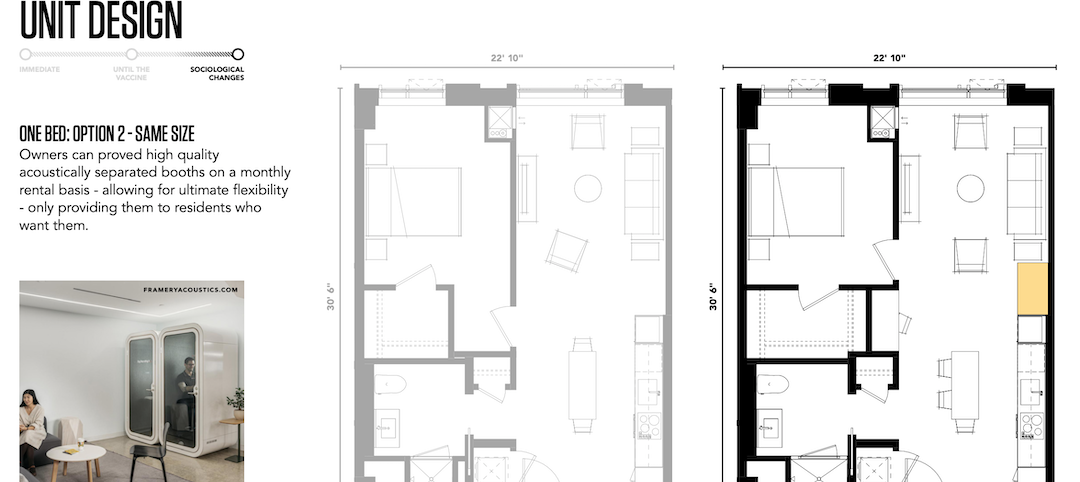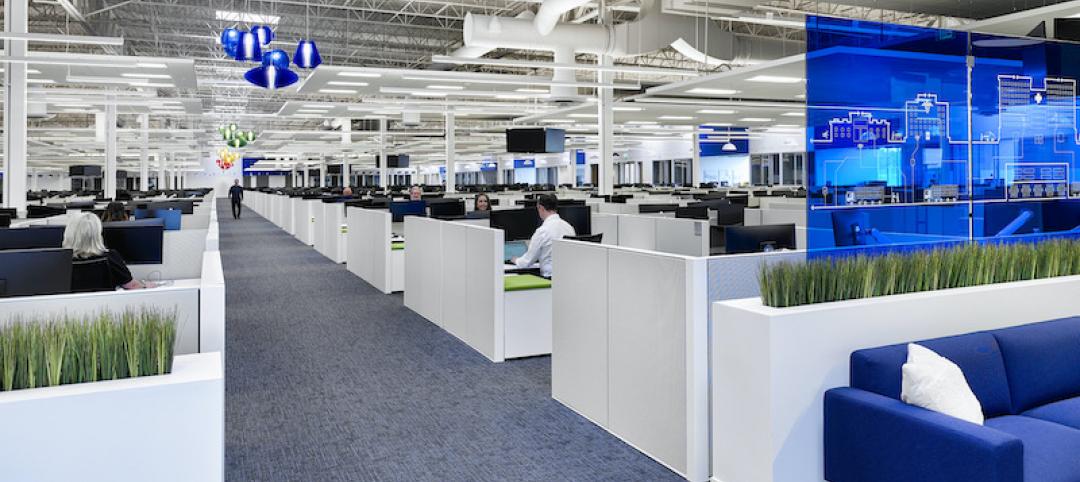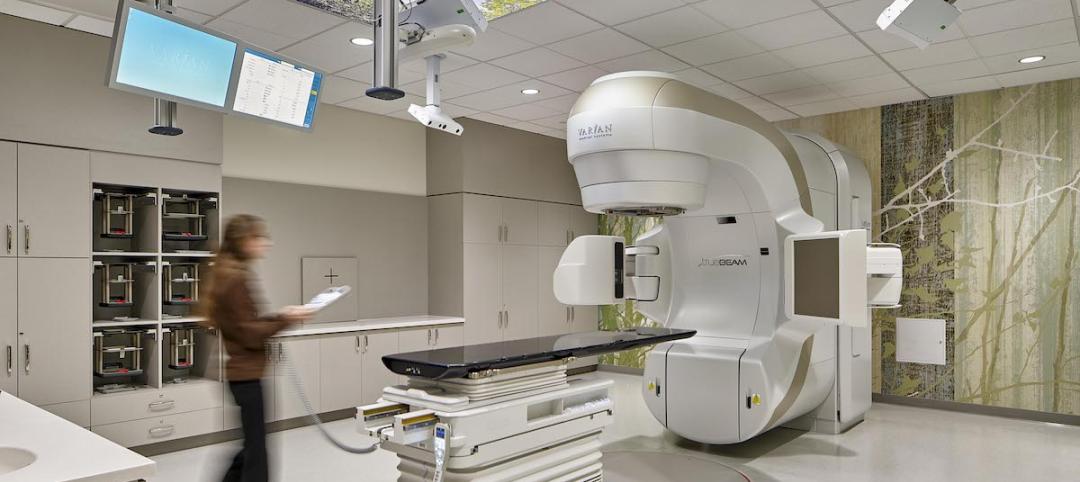Richard Rubin sees the current spate of empty hotels, motels, retail, and office spaces created by the pandemic as opportunities for adaptive reuse to affordable housing, which is in perennially short supply in many markets in the U.S. and around the world.
Rubin is CEO of Repvblik, a Los Angeles-based company that specializes in such conversions. He and his partner Chris Potterpin of PK Housing Michigan—which is part of a multistate property management company that includes a development and construction division—have several hospitality-to-housing projects in the works in the Midwest, including the conversation of a hotel in Stillwater, Okla., to 141 units of student housing located a mile from Oklahoma State University that should be ready for occupancy this fall.
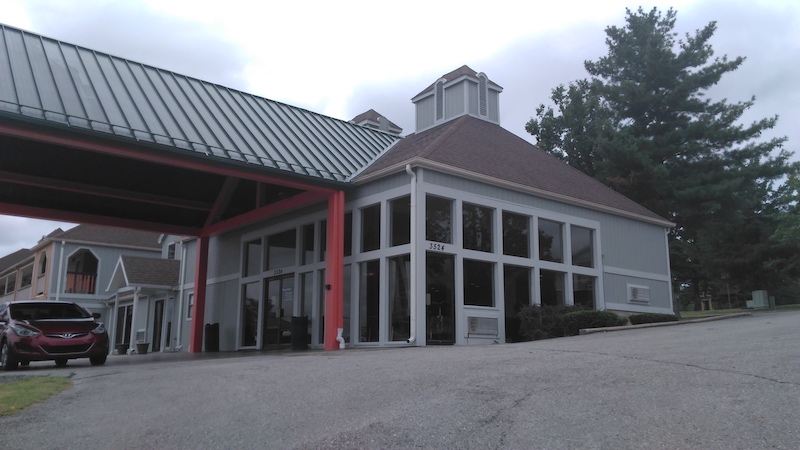 Plato's Cave is an adaptive reuse of a Days Inn in Branson, Mo. When completed it will have 341 rentable apartments, each of which with a kitchen that was installed by the developer. Images: Repvblik
Plato's Cave is an adaptive reuse of a Days Inn in Branson, Mo. When completed it will have 341 rentable apartments, each of which with a kitchen that was installed by the developer. Images: Repvblik
Repvblik’s most ambitious project to date is the conversion of a 420-key Days Inn within six buildings on 14.5 acres in Branson, Mo., which had been vacant for at least eight years, to Plato’s Cave, which when completed next year will offer 341 rentable apartments. The first phase, with nearly 170 units, opened recently and was renting for between $495 and $695 per month. “Branson is leasing very well,” says Rubin in an interview with BD+C last week.
The hotel rooms were 285 sf. Some of the hotel units were combined into one apartment. Repvblik added kitchens, installed sprinklers in four of the buildings, and built a clubhouse, fitness center, and exterior fencing. Rubin estimates that this project, including the amenities, cost between $15,000 and $20,000 per unit converted, with most of the work being done by the company’s internal construction crews. “It’s a heavy lift, but not as heavy as a greenfield project,” he says.
His financing for the projects in Missouri and Oklahoma is a combination of syndicated equity, construction loans, and permanent debt financing.
TRANSFERRING IDEAS FROM HIS HOMELAND
Rubin, a South African, came to the U.S. in 2015 for a student housing conference in Austin, Texas, and decided to stay. (He was particularly attracted to living in southern California.) In the 10 years before his arrival, Rubin was managing director for AENGUS Property Holdings, a “turnkey” developer focused on urban renewal.
He recalls that in the early 2000s, Johannesburg decentralized its business district, which led to a series of company relocations and vacant high rises. Rubin approached REITs that owned some of those high rises about converting their spaces into affordable rental units, which he started doing in 2004. He says that over the following decade, AENGUS converted “several million square feet” of commercial office space into workforce housing.
After he emigrated to the U.S., it took him a few years to get the lay of the land. He and Potterpin formed Repvblik in 2016-17, and the company initially looked for adaptive reuse opportunities in Detroit. The company is now homed in on the Midwest, where Rubin claims there are “hundreds” of hotels and motels that are either vacant because of the COVID-19 virus, semi occupied, or have been closed for several years.
Aside from the Stillwater and Branson projects, Repvblik has two hotel-to-workforce housing conversions in the works in Michigan, and one in Ohio. He declined to specify which markets in each state.
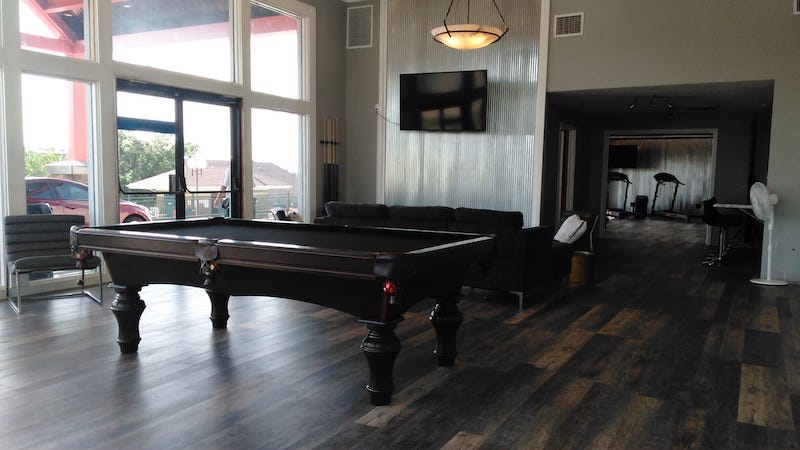 A common area in Plato's Cave includes a billiards table and fitness center. Image: Repvblik
A common area in Plato's Cave includes a billiards table and fitness center. Image: Repvblik
COMPARED TO OTHER CRES, AFFORDABLE HOUSING IS LOOKING BETTER
Putting on his sales cap, Rubin is convinced that now is the time for investors to jump into affordable housing. The conventional places where they might have parked their money previously, like retail malls or hospitality, have been decimated by the pandemic, and there’s no telling what “recovery” will look like for either.
On the other hand, Rubin states, there’s are always opportunities in affordable housing because “there’s so little of it.” Rubin calls this the “missing middle.” And with unemployment at its highest levels in generations, the need to provide individuals and families with places to live they can afford has rarely been more pressing.
Related Stories
Multifamily Housing | Mar 27, 2021
Designing multifamily housing today for the post-Covid world of tomorrow
The multifamily market has changed dramatically due to the Covid pandemic. Here's how one architecture firm has accommodate their designs to what tenants are now demanding.
Office Buildings | Mar 26, 2021
Finding success for downtown office space after COVID-19
Using the right planning tools can spur new uses for Class B and C commercial real estate.
Coronavirus | Mar 11, 2021
The Weekly show, March 11, 2021: 5 building products for COVID-related conditions, and AI for MEP design
This week on The Weekly show, BD+C editors speak with AEC industry leaders about building products and systems that support COVID-related conditions, and an AI tool that automates the design of MEP systems.
Coronavirus | Feb 24, 2021
COVID-19 spurs need for specific building solutions
A medical supply house’s new call center and a vaccination module that can handle more patients faster are among the latest projects.
Healthcare Facilities | Feb 5, 2021
Healthcare design in a post-COVID world
COVID-19’s spread exposed cracks in the healthcare sector, but also opportunities in this sector for AEC firms.
Data Centers | Jan 21, 2021
The Weekly show, Jan 21, 2021: Data centers in a pandemic world, and LGBT certification for AEC firms
This week on The Weekly show, BD+C editors speak with AEC industry leaders about LGBT certification for architecture, engineering, and construction firms, and the current state of data centers in a pandemic world.
Multifamily Housing | Jan 8, 2021
Student housing development in the time of COVID-19
Despite the coronavirus pandemic, many college and university residences were completed in time for classes, live or virtual. Here are 14 of the best.
Healthcare Facilities | Dec 10, 2020
The Weekly show: The future of medical office buildings, and virtual internship programs
This week on The Weekly show, BD+C editors spoke with leaders from SMRT Architects and Engineers and Stantec about the future of medical office buildings, and virtual internship programs
AEC Tech | Dec 8, 2020
COVID-19 affects the industry’s adoption of ConTech in different ways
A new JLL report assesses which tech options got a pandemic “boost.”
Multifamily Housing | Dec 4, 2020
The Weekly show: Designing multifamily housing for COVID-19, and trends in historic preservation and adaptive reuse
This week on The Weekly show, BD+C editors spoke with leaders from Page & Turnbull and Grimm + Parker Architects about designing multifamily housing for COVID-19, and trends in historic preservation and adaptive reuse


